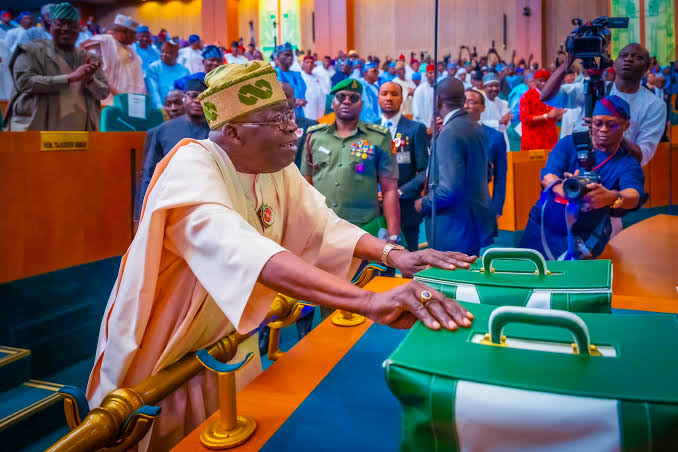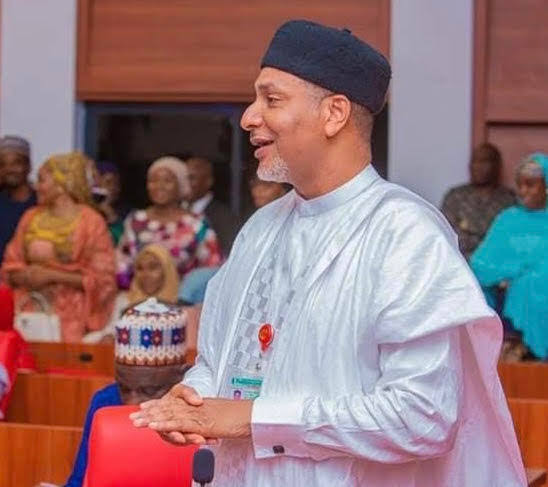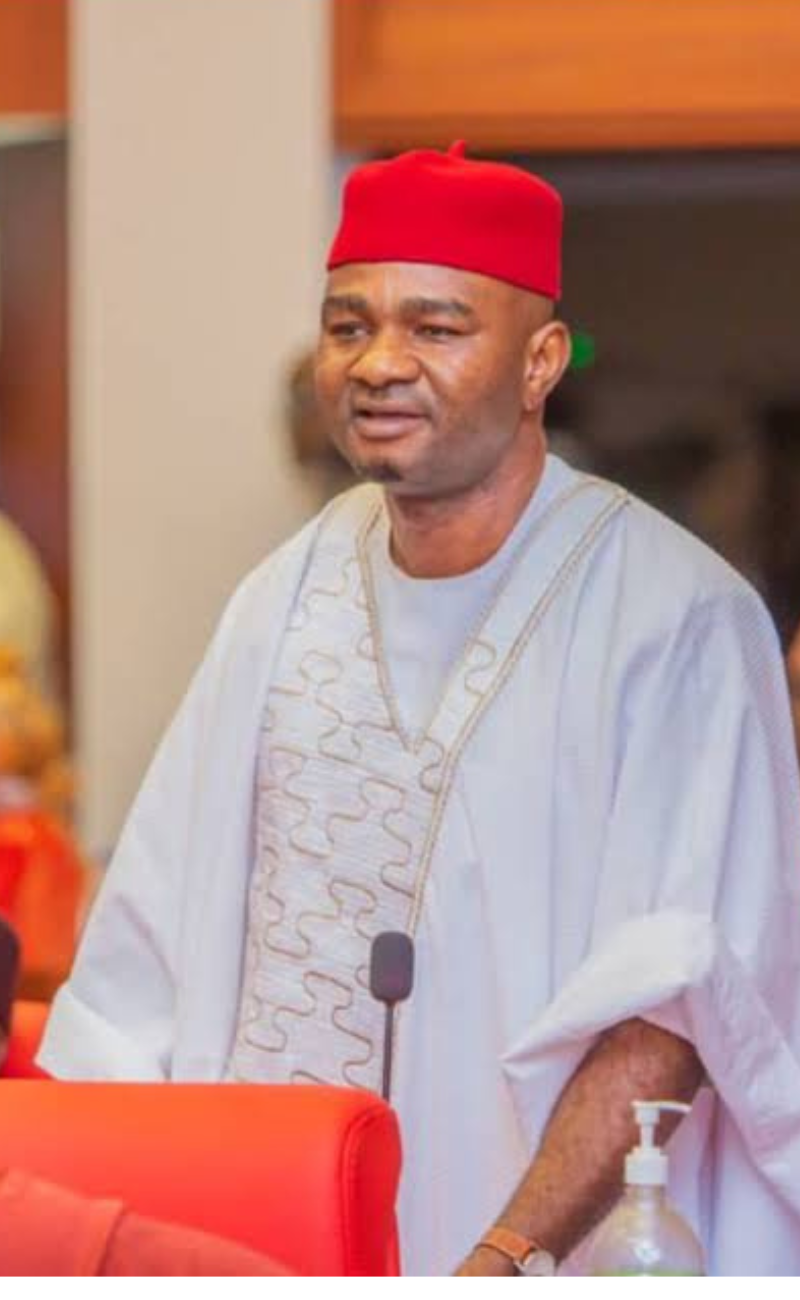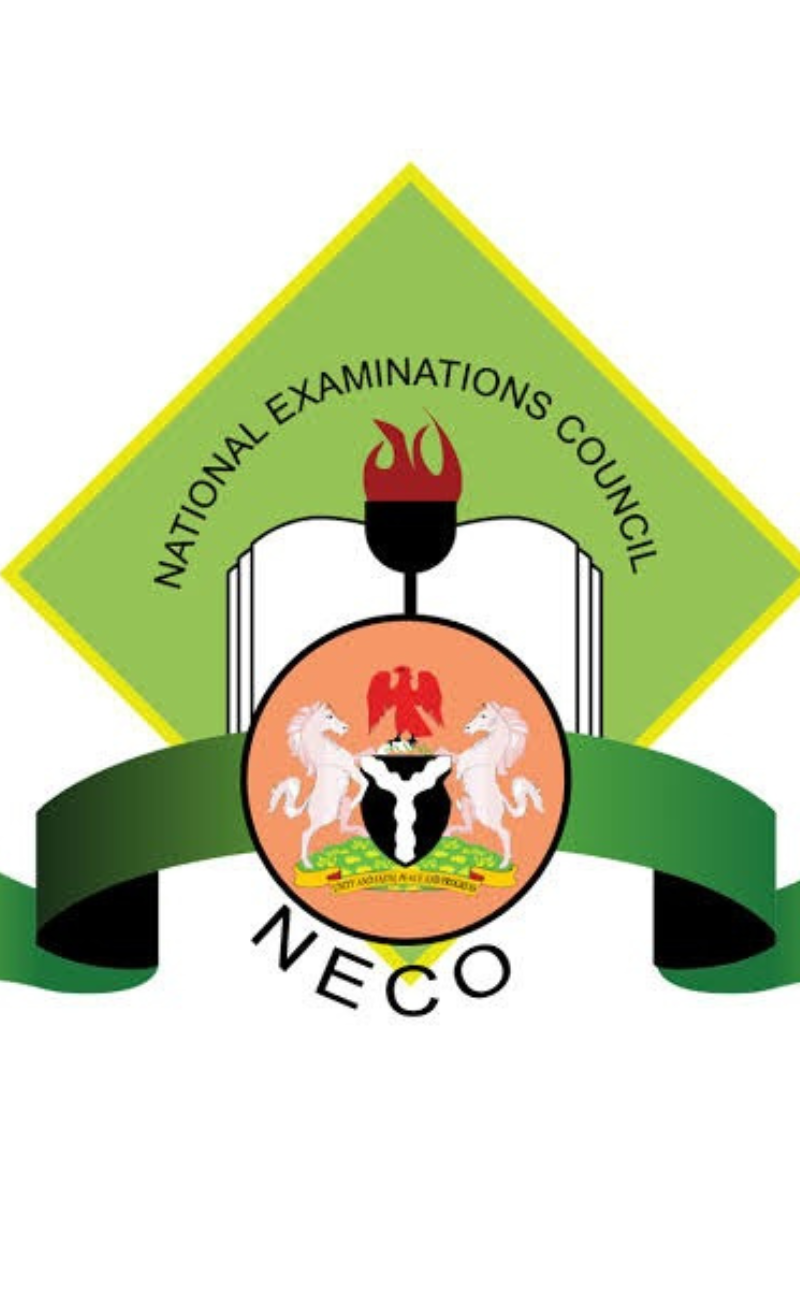Akpabio emphasised the transformative power of budgets in addressing societal inequalities.

President of the Senate, Godswill Akpabio, has called for the ₦49.74 trillion 2025 budget to prioritise the welfare of Nigerians, aligning with the Tinubu administration’s vision of a better future.
Akpabio made this assertion on Thursday while giving his opening remarks at the stakeholders’ public hearing and interactive session on the 2025 appropriation bill.
Akpabio emphasised the transformative power of budgets in addressing societal inequalities, urging all stakeholders to ensure the budget reflects the people’s aspirations.
He said, “Together, we must ensure that this budget is not a mere ledger of revenues and expenditures but a living document that prioritizes the welfare of every Nigerian. Historically, budgets have been pivotal in transforming societies, addressing inequalities, and fostering economic and industrial growth. Nations that have achieved remarkable progress understood that budgets must not only reflect the priorities of government but also the hopes and needs of the people.
“Therefore, let it be known that the National Assembly stands resolute in its commitment to collaborate with the Executive to deliver a budget that is realistic, implementable, and reflective of our shared national priorities. We shall uphold the sacred principles of accountability, ensuring that every naira spent is a naira well invested in the prosperity of our people.
“But let us also recognize a deeper truth: no budget, no matter how meticulously crafted, can succeed without the active participation and ownership of the people. As an African proverb wisely reminds us, ‘The man who uses a spoon with his neighbor does not eat alone.’ This budget is our collective responsibility. Its success depends not only on those in government but on every Nigerian on our shared determination to demand transparency, embrace accountability, and ensure its faithful implementation.
“Distinguished colleagues, esteemed stakeholders, and patriotic citizens, we stand at the threshold of history. The road ahead may be steep, but it is a road worth traveling. Together, through dialogue, cooperation, and unwavering resolve, we can transform this budget into a tool of restoration, a vehicle of transformation, and a symbol of our collective triumph over adversity.”
READ ALSO: BREAKING: 2025 budget scales second reading in senate
The Chairman of the Senate Committee on Appropriation, Sen. Solomon Olamilekan (APC, Ogun West) justified the sectoral allocations, highlighting their focus on rebuilding Nigeria. He noted that defense and security received the highest allocation, reflecting the government’s commitment to combating insecurity, while significant funds for infrastructure, education, and health aim to foster economic growth, improve quality education, and enhance healthcare systems.
He said, “The sectoral allocations in the 2025 Appropriation Bill clearly demonstrate the government’s avowed commitment to rebuilding Nigeria. ₦4.91 trillion (9.9 percent of the total budget) has been allocated to defense and security, underscoring the government’s determination to tackle insecurity, a significant impediment to economic stability and foreign investment. These resources will strengthen national defense capabilities, enhance law enforcement operations, and support community-based security initiatives, ensuring a safer environment for all Nigerians.
“₦3.52 trillion (7.1% of the total budget) has been allocated to the education sector, reflecting a commitment to improving access to quality education and equipping the Nigerian workforce for a competitive global economy.
“Similarly, ₦2.48 trillion (5.0% of the total budget) is earmarked for the health sector, signaling intensified efforts to enhance healthcare delivery systems, reduce maternal and child mortality rates, and strengthen pandemic preparedness. These investments are central to fostering a healthier, more productive population capable of driving economic growth.”
Olamilekan assured stakeholders of strict oversight of the budget’s implementation and adherence to its underlying economic assumptions, which include an exchange rate of ₦1,500/$1, a crude oil benchmark of $75, and inflation projected to drop to 15 percent in 2025.
“Given the importance of these economic variables to the 2025 budget, the Appropriations Committee will engage relevant MDAs and other stakeholders to evaluate the feasibility of these assumptions. Where these assumptions are retained in the 2025 budget, we will closely monitor their implementation throughout the year to ensure effective budget execution,” he said



